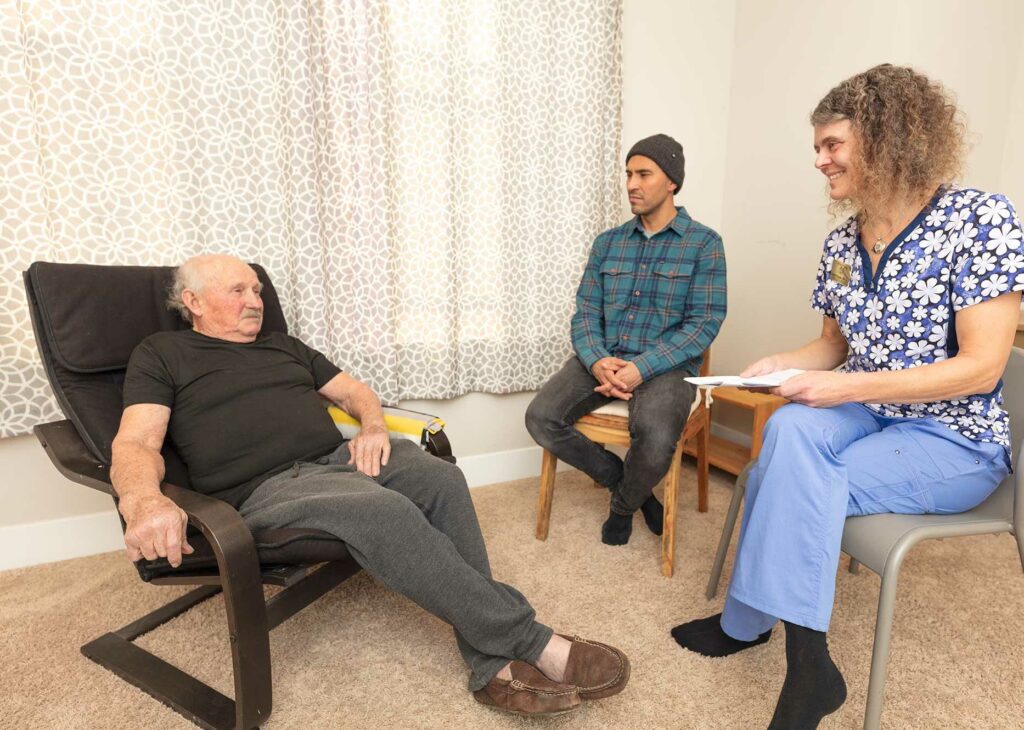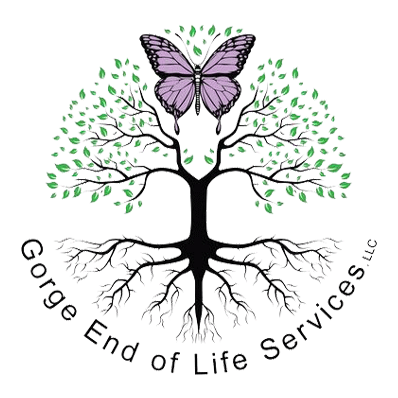For Whom Is This Service?

Individuals with decision-making ability who are 18 years or older, in good or in poor health. Ideally, all adults have an Advance Directive, as an accident or serious illness can happen suddenly.

Individuals who do not have an Advance Directive or would like to review their current Advance Directive.

Individuals who are the healthcare agent of a person who can no longer make their own healthcare decisions due to a medical condition and want support in reviewing that person’s Advance Directive.


Benefits Of This Service

Individuals are informed about their options, comfortable with their choices, and sign a person- centered Advance Directive.

A healthcare agent who feels prepared for their role.

Copies of the finalized Advance Directives are at pertinent medical provider’s offices, with the healthcare agent(s), and possibly with additional friends or family members.

If applicable, the individual with advanced illness is comfortable discussing the POLST form options (Portable Orders for Life-Sustaining Treatment) with their medical provider.
Offerings
What’s Included?
-
Facilitated conversations to find out the person’s medical goals, values, and preferences.
-
Ideally, these meetings are held with the individual who wants to finalize their Advance Directive and their chosen healthcare agent(s), so they can learn about the individual’s choices. This leads to the healthcare agent being most prepared in case they need to advocate in the future.
-
For individuals with advanced illness: Facilitated conversations to explore treatment preferences and the options on the POLST (Portable Orders for Life Sustaining Treatments) form, so they are more prepared to discuss their wishes with their medical provider, who would sign the POLST.
-
Respecting Choices® decision aids will be provided on topics like CPR and Help with Breathing, for example.
-
Carola Stepper can assist with writing down questions to ask a medical provider or clergy.
-
Often it is easier to have these difficult conversations with a facilitator, with enough time so the participants don’t feel rushed.


Qualifications

Respecting Choices® certified Advance Care Planning Facilitator (Advanced Steps)

Experience discussing the POLST form as a Hospice RN Case Manager
Frequently Asked Questions
What is Advance Care Planning?
-
An Advance Directive (also called durable power of attorney for healthcare or healthcare proxy) involves planning for future care. It is a legal document that informs the healthcare team of the individual’s wishes about their medical care in case they are unable to speak for themselves.
-
It allows an individual to designate a healthcare agent (also called surrogate or proxy) who can make medical decisions on their behalf if, at some future time, they are unable to make decisions themselves.
How are they offered?
Via videoconference or in-person, in the clients home, or a hybrid of both.
How often do people usually need to receive these services?
Many individuals will only need one session, approximately one hour. Some will want to think about their options or discuss them with family members, clergy, and medical providers, then return for another session to finalize their decisions.
Is this service covered by insurance? How much does it cost?
Please click here for the Fee Schedule.
If I sign an Advance Directive, do I give up my right to make my own decisions?
No, as long as an individual is competent, they can change their mind about their medical choices as well as whom they designate as their healthcare agent. The healthcare agent will only be able to make decisions on their behalf if the individual is unable to do so themselves.
Does a lawyer or doctor have to sign the Advance Directive?
No, the individual filling out the Advance Directive has to sign it in front of a public notary or in front of two qualified witnesses. One can ask a lawyer to help with filling out the Advance Directive, but this is a personal choice.
There is a different document, called POLST (Portable Orders for Life Sustaining Treatment) which does need to be signed by a doctor. It gives an individual with a advanced illness the option to choose if they want or don’t want resuscitation (=CPR) and if they would like full, selective, or comfort-focused treatments. A POLST does not designate a healthcare agent.
Additional Resources
Anyone can fill out their Advance Directive without using facilitation services. However, for many people this is a delicate, emotional, and sometimes confusing topic which often doesn’t make it to the top of their to-do list.
It involves thinking and talking about medical choices which are not always easily understood. Additionally, multiple individuals may be involved in this conversation and facilitation services have been shown to increase the follow through and finalization of Advance Directives.
-
“MyDirectives.com” website and App, offers to upload and store an Advance Directive or fill out their online Advance Directive.
-
Columbia Gorge Health Council offers support with Advance Directives.


